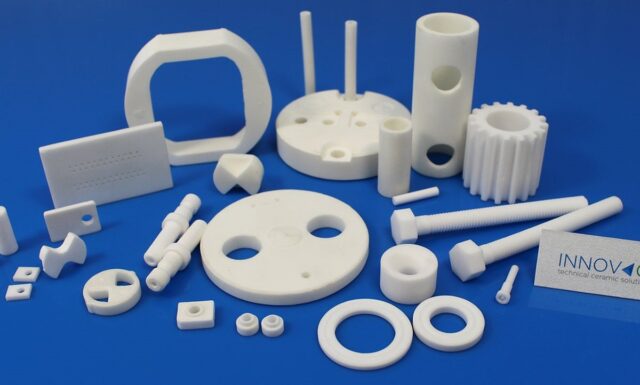In today’s high-tech world, materials that can withstand extreme conditions while maintaining precision and durability are in high demand. Advanced technical ceramics have emerged as game-changers in numerous industries, offering superior mechanical, thermal, and electrical properties compared to traditional materials like metals and plastics. Their exceptional resistance to heat and wear makes them perfect for use in engines, turbines, and solar panels, where reliability and efficiency are critical.
Why Technical Ceramics Are Reshaping Industries
Unlike conventional ceramics used in pottery or home décor, advanced technical ceramics are engineered for high-performance applications. They exhibit exceptional resistance to wear, corrosion, and heat, making them essential in industries requiring precision and longevity.
Electronics: Paving the Way for Miniaturization
The electronics industry thrives on innovation, and technical ceramics play a crucial role in making devices smaller, faster, and more efficient.
- Semiconductor manufacturing: Ceramic components are widely used in semiconductor fabrication due to their ability to withstand high temperatures and harsh chemicals.
- Insulators and substrates: With excellent dielectric properties, technical ceramics are essential in circuit boards, sensors, and high-frequency applications.
- Smartphone advancements: Ever wondered how smartphones continue to get thinner while improving performance? Ceramic components help in heat dissipation and structural support, enabling sleeker designs.
Aerospace: Materials Built for the Extreme
Few industries push material limits as much as aerospace. From satellites to jet engines, advanced ceramics play an integral role.
- Thermal protection systems: Spacecraft experience extreme temperature fluctuations, and ceramic-based materials help protect them from heat damage.
- Engine components: Ceramic coatings on turbine blades enhance efficiency and longevity, reducing maintenance needs.
- Lightweight advantage: Compared to metals, ceramics provide high strength with less weight, contributing to fuel efficiency in aircraft.
Medical Advancements: Biocompatible and Durable Solutions
The medical industry has embraced technical ceramics for their exceptional compatibility with the human body.
- Dental and orthopedic implants: Ceramic materials are used in dental crowns, hip replacements, and bone scaffolds due to their biocompatibility and resistance to wear.
- Medical imaging devices: Ceramics improve the performance of X-ray machines, MRI scanners, and ultrasound transducers, leading to clearer diagnostics.
- Surgical tools: Their resistance to corrosion and easy sterilization make ceramics ideal for precision surgical instruments.
Automotive: Enhancing Performance and Sustainability
The push for more efficient and eco-friendly vehicles has made ceramics a key material in modern automotive design.
- Ceramic brake discs: Known for superior heat resistance and durability, ceramic brakes enhance performance and safety in high-performance vehicles.
- Electric vehicle (EV) components: Ceramics improve battery efficiency and heat management, aiding in the expansion of the EV market.
- Exhaust systems: Ceramic catalytic converters help reduce harmful emissions, contributing to cleaner air.
Industrial Applications: Strength Meets Precision
Technical ceramics are found in various industrial settings where strength and precision are paramount.
- Manufacturing tools: Cutting tools, bearings, and nozzles made from ceramics last longer and perform better under stress.
- Chemical processing: Their ability to resist corrosion and extreme temperatures makes them invaluable in chemical plants and refineries.
- Food and beverage industry: Ceramics are used in filtration systems to ensure product purity and safety.
Fun Fact: Ceramics in Space Exploration
NASA and other space agencies rely on technical ceramics for critical missions. The heat shields on space shuttles are made of ceramic tiles that can endure temperatures up to 1,650°C (3,000°F), protecting astronauts during reentry.
The Future of Technical Ceramics
As technology advances, technical ceramics will continue to revolutionize industries, enabling innovations in electronics, medicine, aerospace, and beyond. With ongoing research and development, their applications are expected to expand further, pushing the boundaries of what is possible in material science.
Whether improving medical implants, making electric vehicles more efficient, or enabling space exploration, technical ceramics are truly shaping the future of modern engineering.

